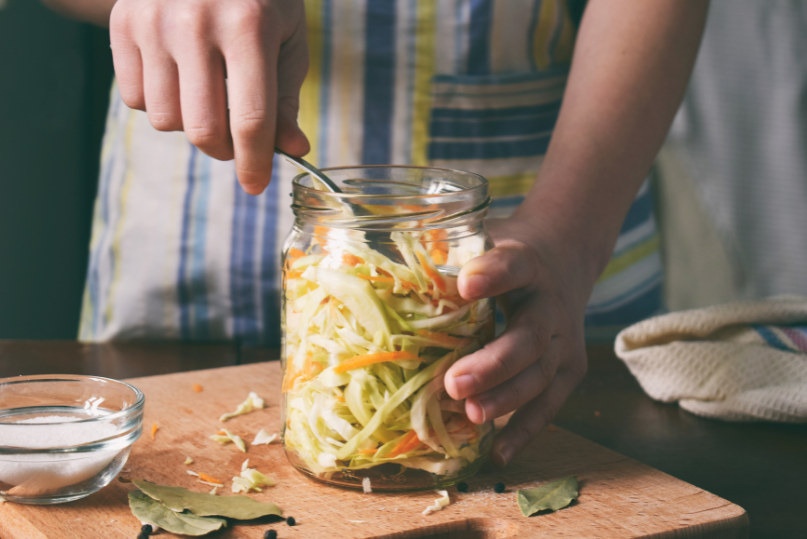Need to improve your muscular recovery?
But have you considered feeding your microbiome?
Did you know the under-valued and under-appreciated post-training recovery supplement is probiotics and fermented foods? Studies have evidence showing that probiotics are a viable and beneficial recovery source for people training intensely.
One study (reference at the end of this blog) reviews a specific strain, which resulted in showing that supplementing the diet with prebiotics and/or probiotics that are able to improve the metabolic, immune, and barrier function, can be an advantageous therapy for athletes and lifeletes.
This particular strain was used in the form of a health supplement, which is the standard in research. However, most experts would recommend sourcing your probiotics from whole foods, rich in fibre, to help feed good bacteria and help it survive and happily colonize.
An estimated 20% to 60% of athletes suffer from stress caused by excessive exercise and inadequate recovery.
The study showed the effects of co-administration of two probiotic strains (Bifidobacterium breve BR03 and Streptococcus thermophilus FP4) on measures of skeletal muscle performance, damage, tension, and inflammation following a bout of strenuous exercise.
The results showed that probiotic supplementation likely enhanced isometric average peak torque production from 24 to 72 hours into the recovery period following exercise. The active formulation also moderately increased resting arm angle at 24 and 48 hours following exercise.
Want that in layman terms?
Basically, it means that athletes who took this strain of probiotic supplements recovered better, and faster.
Growing Evidence
There is growing evidence showing that the gut microbiota (a.k.a. ecosystem of gut bacteria) further plays important roles in the maturation of the immune system and the protection against some infectious agents.
In addition, there are several well-known effects that exercise plays on gut physiology. Exercise volume and intensity have been shown to exert an influence on the status of your gastrointestinal health.
We created Aus Natural Protein based on scientific evidence, and high quality whole foods, so that you can make the most out of your athletic performance and get results.
How to make the most out of your Aus Natural Protein smoothie?
Aus Natural Protein has plenty of beneficial prebiotic, in the form of an ingredient called inulin! Inulin is a natural soluble fibre which is a type of prebiotic found in many plants and often sourced from chicory.
Fortunately for you, Aus Natural Protein Powders contain added inulin in generous quantities making it a good source of dietary fibre and an easy choice for all of you.
We also recommend adding some yoghurt to your smoothie when you can. That gives you the benefit of having the inulin, as a prebiotic, and yoghurt as the probiotic. Prebiotic's feed the gut bacteria, and probiotics are the gut bacteria!
Get more of the good stuff
Other ways you can incorporate some foods to love your guts are through fermented foods such as:
- Kimchi
- Sour pickles
- Saurkraut
- Aged cheese
- Kefir
- Kombucha
- Natto
- Miso
- Tempeh
⚠️We just want to make a note of caution when you're at the supermarket⚠️: Some foods are advertised as good for you, but actually don't harbour any good bacteria because of preservatives, and other chemicals which eliminate their effectiveness. Get yourself clued up on what is good to buy...or make it yourself!!
Human beings harbour clusters of bacteria in different parts of the body, such as the surface and in the deep layers of the skin, the mouth, lungs, intestine, genitals, and all the surfaces exposed to the outer world.
The majority of microbes reside in the gut, and have a weighty influence on human physiology and nutrition. Newer studies are showing how they affect our mood and regulate our mental health. They are vital for human life.















